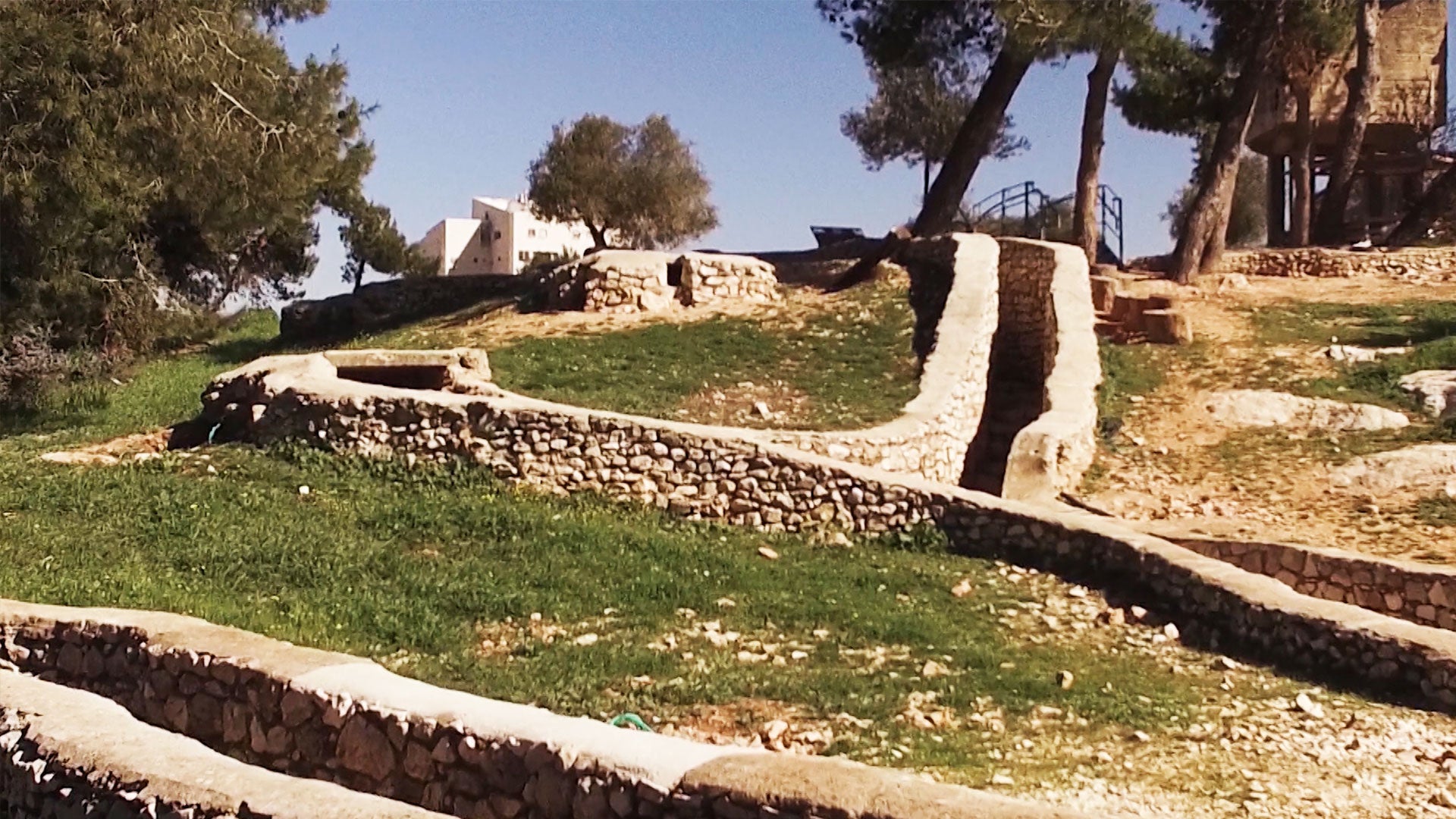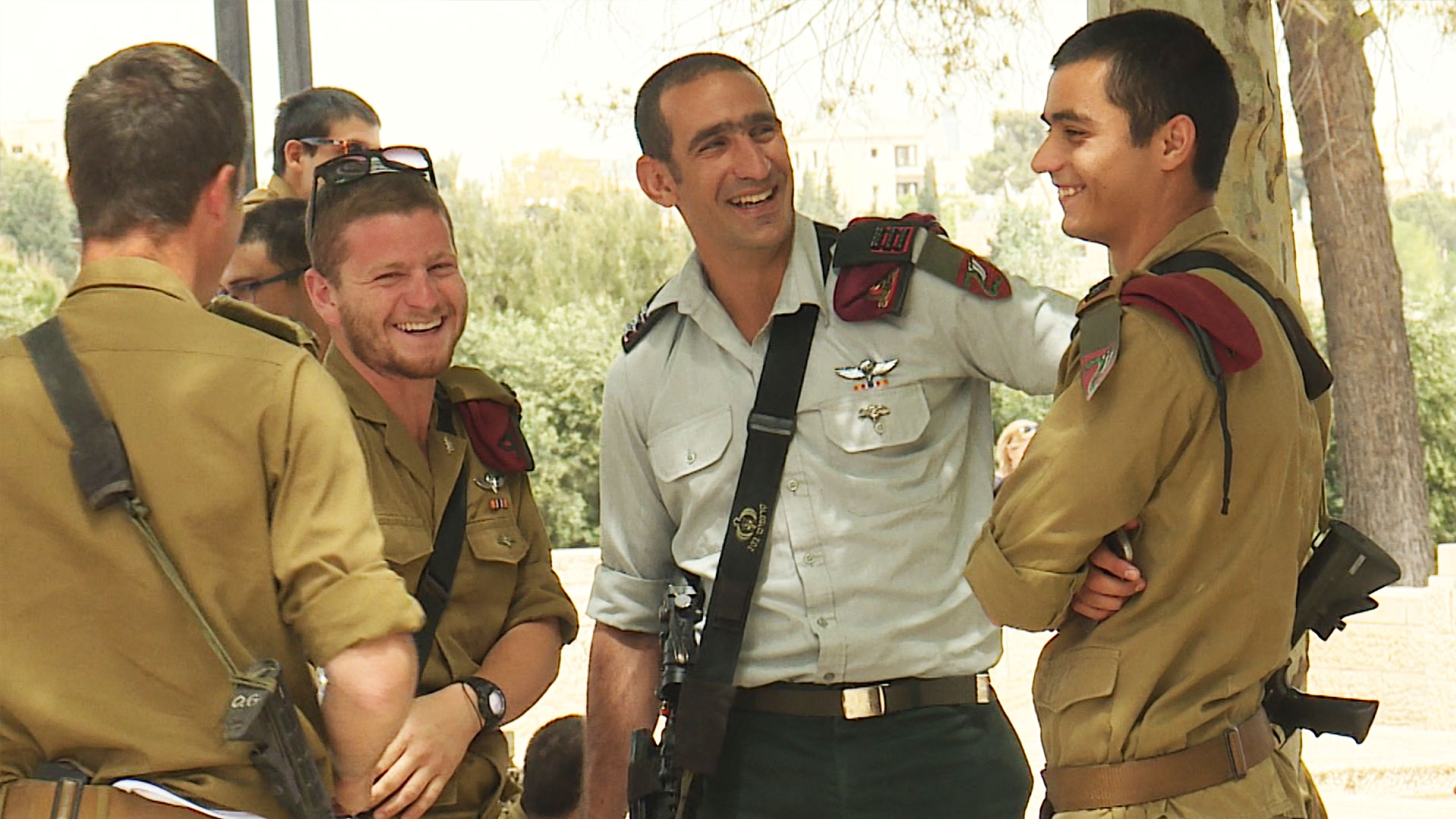Ammunition Hill: 'When you rise up toward the fire, it's for your friends'
JERUSALEM, Israel – The Six-Day War played a pivotal role in the development of the Israel Defense Forces (IDF). One of the first urban battles took place in Jerusalem and set the stage for future warfare. CBN's Scott Ross spoke with an IDF reserve commander about the impact still felt from 50 years ago.
The 55th Paratroopers Brigade still serves as a reserve unit today, as it did in the 1967 battle for Jerusalem.

Lt. Col. Anshel Pfeffer, who commands the 28th Reserve Battalion of the 55th Brigade told CBN News, "We're part of the 98th division, which is more or less the equivalent of the 101st airborne division in the US army."
"We do the most interesting and most dangerous and most challenging missions in the IDF, so I believe and as paratroopers, we live up to our code: Walking on our feet in the night, quietly, and then hitting the enemy wherever he is without him knowing about us in advance," he said.
Pfeffer, a hi-tech executive in civilian life, took Ross through the trenches at Jerusalem's Ammunition Hill where battalion soldiers fought for Jerusalem 50 years ago.
"Ammunition Hill was the bunker of the Jordanian police academy, which is just behind us, and the police academy was the main objective of that specific battle before they continued toward the Old City," Pfeffer recounted.
"And this was what – day two of a six-day war?" Ross asked.
"Day two," Pfeffer said. "After taking the police academy, they advanced toward…what's called today the Ammunition Hill, and they spent many, many hours trying to advance from trench to trench."

Pfeffer said they started with almost 200 Israeli soldiers fighting here "and very, very few remained standing at the end of the battle."
"But they weren't training for this kind of warfare were they?" Ross asked.
"No," replied Pfeffer. "They were very surprised. They described it as a very big disappointment not being parachuted to fight the Egyptians, but then of course it became one of the most important battles in Israeli history – the battle specifically here, but also in other places in Jerusalem, was all done in [a] very improvised, as we call it, Israeli-type warfare."
Ross asked how soldiers carrying rifles, grenades and other equipment were able to squeeze through the narrow trenches to take on the enemy.

"That's a very good question. Unfortunately, many of them had to climb above and the stories describe young soldiers telling their commanders, 'I'm going to go up with my machine gun and as you're walking down in the trench I'll go up on top' and every time they advance – one, two, three, five feet and then the next guy climbed up and continued it. The previous one was hit and that's how they managed to advance. Some of them pulled back the injured toward the injured facility with the doctors behind, but they had to keep advancing," Pfeffer explained.
"I can stand here as an American and look at our history and talk about [the] Revolutionary War [or the] Civil War – that's hundreds of years ago," Ross said. "This is 50 years ago and you know, I don't want to get overly dramatic – how can you? – But this is hallowed ground. Do you see it that way?"
He does.
"This ground is holy ground as far as the way we see because our friends, our comrades, fell here and the place we respect very much. As you can see, it became a national monument," Pfeffer answered.
Standing by the half-track that barreled through the Lion's Gate into the Old City, the colonel said it is an honor to continue in the heritage of those who went before them.
"Every year on the Six-Day War commemoration date, we meet with our predecessors," Pfeffer said. "We also remember the fallen and we talk of them. It's a very strong part of our heritage."
Asked what motivated these men to lay down their lives, Pfeffer said, "At the end of the day, it's fighting with your friends, with your comrades – what they call brothers-in-arms – and that's what makes people at the end of the day rise up toward enemy fire and advance.

"The big vision, the mission, conquering Jerusalem, all that's important, but – at the end of – at the moment you rise up toward the fire, it's for your friends," he said.
"Are your men motivated like that today?" Ross asked.
"We believe so. We hope so. We look up to them," Pfeffer said. "Today's young soldiers are both in their professionalism and also in their values as good as we were then."
Pfeffer, who commands about 700 reserve soldiers, told Ross the lessons of that war are for today's soldiers.

"How has the past affected the future, the training of the men now?" Ross asked him.
"Well, the battle for Jerusalem in 1967 was one of the first battles in urban warfare and if you look around today, both in the IDF and also the U.S. army and any other Western army, the challenge of infiltrating – fighting terrorists and other organizations, which are fighting from within – civilian and urban warfare environments has become the most common part of warfare and we're learning," he said.
Pfeffer said it weighed heavily on his shoulders to send men into battle.

"I've been a commander for almost 20 years and it weighs heavy, but it's an important mission. It's part of our life – the Israeli system of the reserve army. It's a combination of democracy that stands up when needed to protect itself."
Ross brought it up to the present day.
"Even today, you're surrounded by people that want to destroy you, that want to annihilate you, wipe you off the map, drive you into the sea," he said. "Your existence is questioned. So do you live in a defensive posture? Or do people live in fear?"
"Eighty percent of my time I'm with my family, with my work, enjoying life, having a great time, and I think most Israelis live a peaceful, very happy, I'd say Western-like lifestyle," said Pfeffer. "Every couple of years, we have a few weeks of tension and we (and) they know we're here to defend them and now, it's our turn."




